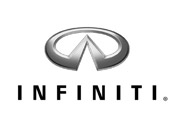There are many options when buying insurance for your vehicle. You can buy from an agent or go online to compare rates from a lot of car insurance companies. Comparing car insurance through online companies can be fast and easy and there is a good chance you can save money.
If you've never shopped for car insurance online, you can be overwhelmed by the hoards of car insurance companies offering insurance. There are several ways to compare quotes from local car insurance companies. The recommended way to compare involves getting comparison quotes online. This can be accomplished by comparing rates here.
Car insurance premiums for a 1996 can be significantly different depending on several factors. Some of these factors include:
- Higher performance 1996 vehicles cost more
- How many accidents you have had
- Home and auto can earn discounts
- Use of your vehicle
- Your age
- Whether you are married
- Extra coverages like towing and rental
- Your occupation
- Your coverage level
- Whether you own your home
An additional factor that can impact is the year of the vehicle. Used vehicles cost less than newer models so repair costs tend to be lower which may result in lower rates. On the flip side, newer models may have safety features like adaptive cruise control, pedestrian detection, and lane departure warning system that may help lower rates.
Coverage for liability - This coverage protects you from damage that occurs to other people or property. Liability coverage protects against things like legal defense fees, bail bonds, and repair bills for other people's vehicles. Coverage is generally pretty cheap so you should buy as large an amount as possible.
Collision coverage - This coverage pays for damage to your caused by collision with another car or object. You first must pay a deductible then your collision coverage will kick in. 1996 collision insurance is rather expensive coverage, so you might think about dropping it from older vehicles. You can also raise the deductible to get cheaper .
Comprehensive coverage (or Other than Collision) - Comprehensive insurance pays for damage OTHER than collision with another vehicle or object. A deductible will apply and then insurance will cover the rest of the damage. The highest amount you'll receive from a claim is the ACV or actual cash value, so if it's not worth much more than your deductible consider dropping full coverage.
Uninsured/Underinsured Motorist coverage - Your UM/UIM coverage protects you and your vehicle's occupants when other motorists do not carry enough liability coverage. Because many people only carry the minimum required liability limits, their liability coverage can quickly be exhausted. That's why carrying high Uninsured/Underinsured Motorist coverage is a good idea.
Insurance for medical payments - Med pay and PIP coverage pay for short-term medical expenses such as nursing services, prosthetic devices, and dental work. They are often used to fill the gap from your health insurance policy or if you lack health insurance entirely. Personal Injury Protection is not available in all states and gives slightly broader coverage than med pay.

